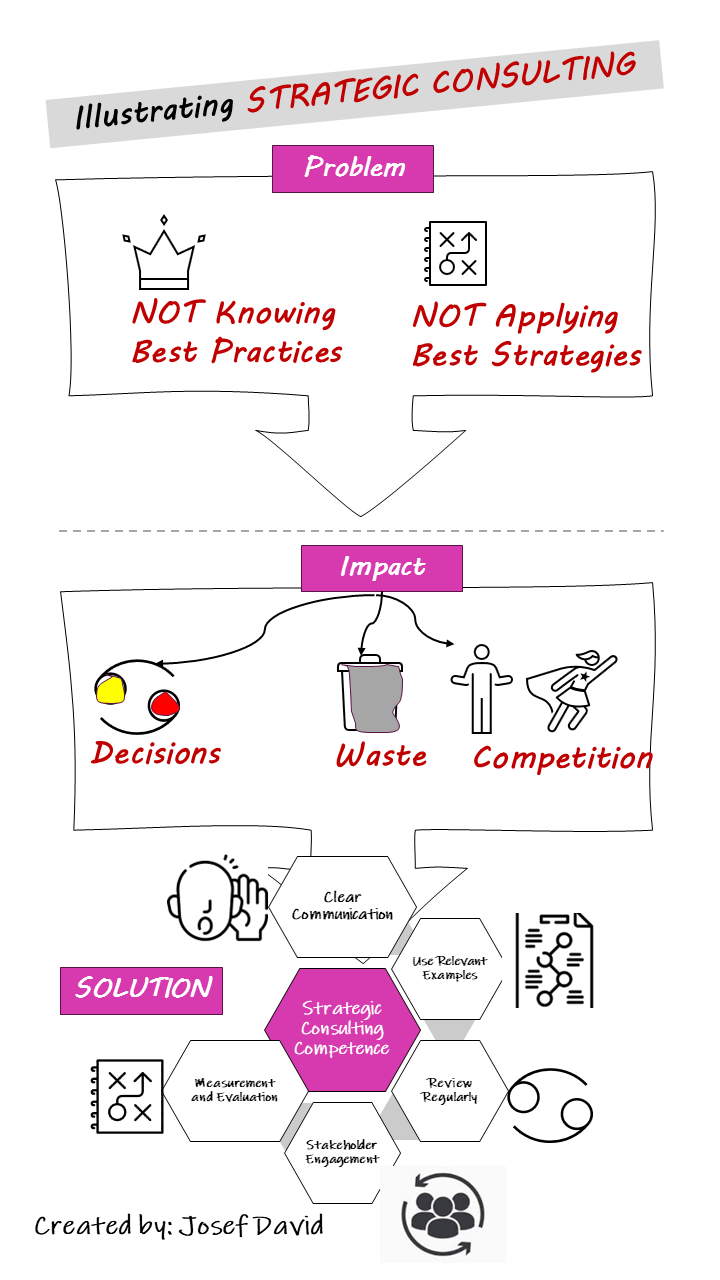Problem:
In the dynamic world of business, strategic consulting has become a cornerstone for companies seeking to navigate the complexities of the market, improve performance, and achieve sustainable growth. However, despite its critical role, many businesses struggle to fully leverage strategic consulting due to a lack of understanding of its best practices. This problem is further compounded by the absence of clear and explicit guidelines on how to extract and implement key strategies. The result is often sub-optimal performance, missed opportunities, and an inability to effectively respond to market changes.
Impact:
The consequences of not adhering to best practices in strategic consulting can be severe. Businesses may find themselves stuck in a cycle of poor decision-making, leading to wasted resources and lost competitive advantage. Without a clear understanding of how to extract key strategies from consulting insights, businesses may also fail to realise their full potential for growth and innovation. This can lead to stagnation and even decline in an increasingly competitive business environment.
Moreover, without carefully chosen examples outlining success criteria, businesses may struggle to measure the effectiveness of their strategies. This can result in a lack of accountability and transparency, undermining trust between stakeholders and potentially damaging the company’s reputation.
Solution:
To address these challenges, it is essential for businesses to adopt best practices in strategic consulting. These include:
1. Clear Communication: Effective communication is at the heart of strategic consulting. Consultants should articulate their insights clearly and explicitly, ensuring that all stakeholders understand the key strategies being proposed.
2. Use of Relevant Examples: To support these strategies, consultants should provide carefully chosen examples that outline success criteria. These examples should be relevant to the business’s industry and context, helping stakeholders visualise how the strategies will work in practice.
3. Regular Reviews: Strategic consulting is not a one-off process but requires regular reviews and adjustments based on market changes and business performance. This ensures that the strategies remain relevant and effective over time.
4. Stakeholder Engagement: Engaging all stakeholders in the strategic consulting process is crucial for its success. This includes not only top management but also employees, customers, and other relevant parties. Their input can provide valuable insights and foster a sense of ownership, increasing the likelihood of successful implementation.
5. Measurement and Evaluation: Finally, businesses should establish clear metrics to measure the success of their strategies. This allows for ongoing evaluation and adjustment, ensuring that the strategies deliver the desired results.
By adopting these best practices, businesses can maximise the benefits of strategic consulting, driving growth, innovation, and competitive advantage in today’s dynamic market environment.
